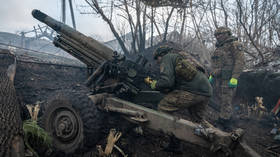Identifying collaborators: Polish lustration law splits society

A new law that requires hundreds of thousands of citizens to report whether they co-operated with the communist secret services has divided Polish society. The law is a brainchild of President Lech Kaczynski and his twin brother PM Yaroslav.
“Have you ever collaborated with Communist Secret Services and in what way?” – that is the question many Poles will have to answer.
The Polish parliament has adopted a lustration, or cleansing, law. It means people born before 1972 will have to fill in a special form and speak the truth or face the consequences.
The law empowers the Institute of National Remembrance which has communist security files, to identify collaborators. The procedure will affect up to 500,000 Poles – politicians, journalists, school principles and even the clergy.
There are some who support the measure, but others are strongly opposed to it. Local press goes on to call the measure a “witch hunt”.
“We need this to get rid of the communist past. The Germans have already gone through the same process. In Poland this law has been introduced only now and we can now reveal the Security Service archives,” noted Andrzej Arseniuk from the Institute of National Remembrance.
These files cover the period from the end of World War Two to the collapse of communism in 1989. If the boxes containing them were lined up, they would reach up to 80 km in length.
For seventeen years Poland has been one of the most successful democracies in post-communism – a model of how to make a transition without major social tensions. Today, almost a generation after the fall of communism, this law is pulling Poles apart, though for many these files are no more than history.
Jacek Zakowski – political commentator of “Polityka” weekly – says the law touches the journalists' dignity, because journalists in the past were very often forced to co-operate with the communist regime but that does not mean they collaborated. He states the lustration law has another aim.
“Everybody who wanted to publish anything officially was forced to be censored. But from the law it comes out that perhaps even if you agreed for your articles to be censored you are a collaborator. The real goal of the law is to change the elite for forcing people to resign public activity, not because they are guilty of doing anything wrong but just because they were living under communism,” said Jacek Zakowski.
Pawel Lisicki, editor-in-chief of the “Rzeczpospolita” newspaper, is one of those who find lustration useful – for him it is a cleansing process that was not carried out when communism collapsed.
“These files exist. It is still a problem and it is still something that could have an influence on Polish public life. So the only way to cut any links between the past and the present, the only way to cruelly cut the influence of ex-secret services, is just to make it public,” stated Pawel Lisicki.













